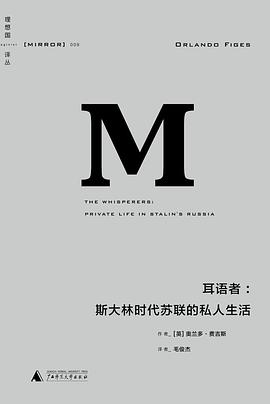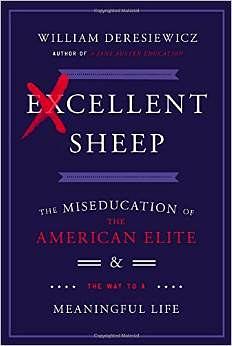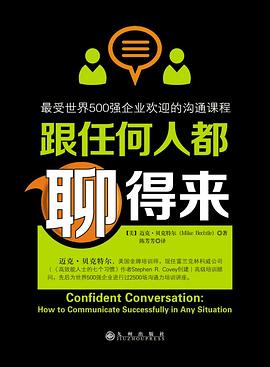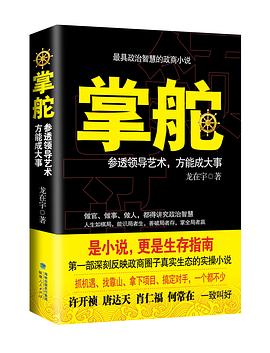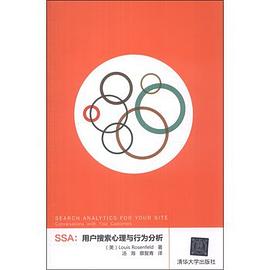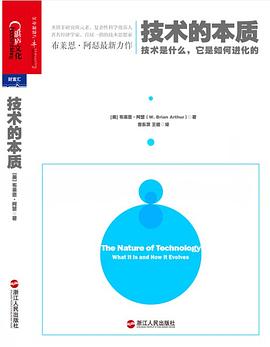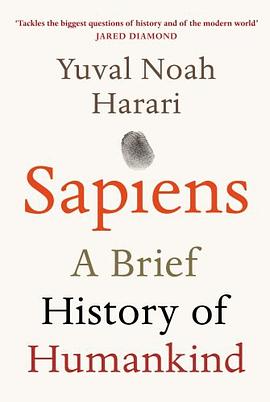

具体描述
100,000 years ago, at least six human species inhabited the earth. Today there is just one.
Us.
Homo sapiens.
How did our species succeed in the battle for dominance? Why did our foraging ancestors come together to create cities and kingdoms? How did we come to believe in gods, nations and human rights; to trust money, books and laws; and to be enslaved by bureaucracy, timetables and consumerism? And what will our world be like in the millennia to come?
In Sapiens, Dr Yuval Noah Harari spans the whole of human history, from the very first humans to walk the earth to the radical - and sometimes devastating - breakthroughs of the Cognitive, Agricultural and Scientific Revolutions. Drawing on insights from biology, anthropology, palaeontology and economics, he explores how the currents of history have shaped our human societies, the animals and plants around us, and even our personalities. Have we become happier as history has unfolded? Can we ever free our behaviour from the heritage of our ancestors? And what, if anything, can we do to influence the course of the centuries to come?
Bold, wide-ranging and provocative, Sapiens challenges everything we thought we knew about being human: our thoughts, our actions, our power ... and our future.
作者简介
DR. YUVAL NOAH HARARI has a PhD in History from the University of Oxford and now lectures at the Department of History, the Hebrew University of Jerusalem, specialising in World History. His research focuses on broad historical questions, such as: What is the relation between history and biology? Is there justice in history? Did people become happier as history unfolded?
65,000 people have taken his online course, "A Brief History of Humankind," and Sapiens is a huge bestseller in Israel and is being published in more than 20 languages worldwide. In 2012 Harari was awarded the annual Polonsky Prize for Creativity and Originality in the Humanistic Disciplines. --This text refers to an out of print or unavailable edition of this title.
目录信息
读后感
文/曼佳 最近一直被人推荐《人类简史》这本书,一个70后的以色列历史学家写的风靡全球的著作。全书讲的是人类的故事,从历史又是从哲学的角度,讲述人从生物学的起源是什么样的,从宇宙的哪里来,要到未来的哪里去的故事,这样的书,是要很安静的环境和很安静的心才能好好读完...
评分这是我在微信读书App讲《人类简史》的文稿,37分钟音频版请登录微信读书App,直接点击《人类简史》即可听我讲的音频版哦。 我们为什么对历史感兴趣? 又该如何阅读历史? 有人说,日光之下,并无新事,所有的事情,都在历史上有章可循,于是,阅读历史,我们可以发现必然的规律...
评分这是我在微信读书App讲《人类简史》的文稿,37分钟音频版请登录微信读书App,直接点击《人类简史》即可听我讲的音频版哦。 我们为什么对历史感兴趣? 又该如何阅读历史? 有人说,日光之下,并无新事,所有的事情,都在历史上有章可循,于是,阅读历史,我们可以发现必然的规律...
评分 评分本书评仅针对第十九章内容。 小学时看过一个关于太阳演化的科普片,说是大约50亿年以后,太阳将演化为红巨星,体积膨胀并吞并数个行星,包括地球在内。 也就是说,地球终将灭亡。 后来学了物理,知道这事虽不是千真万确,但也八九不离十了。当然,50亿年是个过于漫长的时间,人...
用户评价
后面部分有点水。说共产主义是宗教的部分中文版应该删掉了?
评分前面还可以,后面作者价值观输出太多
评分很少看到有新的观点,但很好地把庞杂的已有观点串联起来,大致梳理了人类历史的脉络
评分终于看完这本漫长的书,感觉还挺参差的。开头几章令我惊为天书,特别喜欢作者脑洞打开的(文科)方式,感觉自己这么学个样儿简直就足以招摇撞骗下半生用了。可惜最后一章实在令人失望,虽然是全书最长的一章,却是最缺乏洞见的一部分,作者短板暴露无疑——毕竟是个文科人士啊。
评分绝对的神作!
相关图书
本站所有内容均为互联网搜索引擎提供的公开搜索信息,本站不存储任何数据与内容,任何内容与数据均与本站无关,如有需要请联系相关搜索引擎包括但不限于百度,google,bing,sogou 等
© 2025 book.quotespace.org All Rights Reserved. 小美书屋 版权所有

